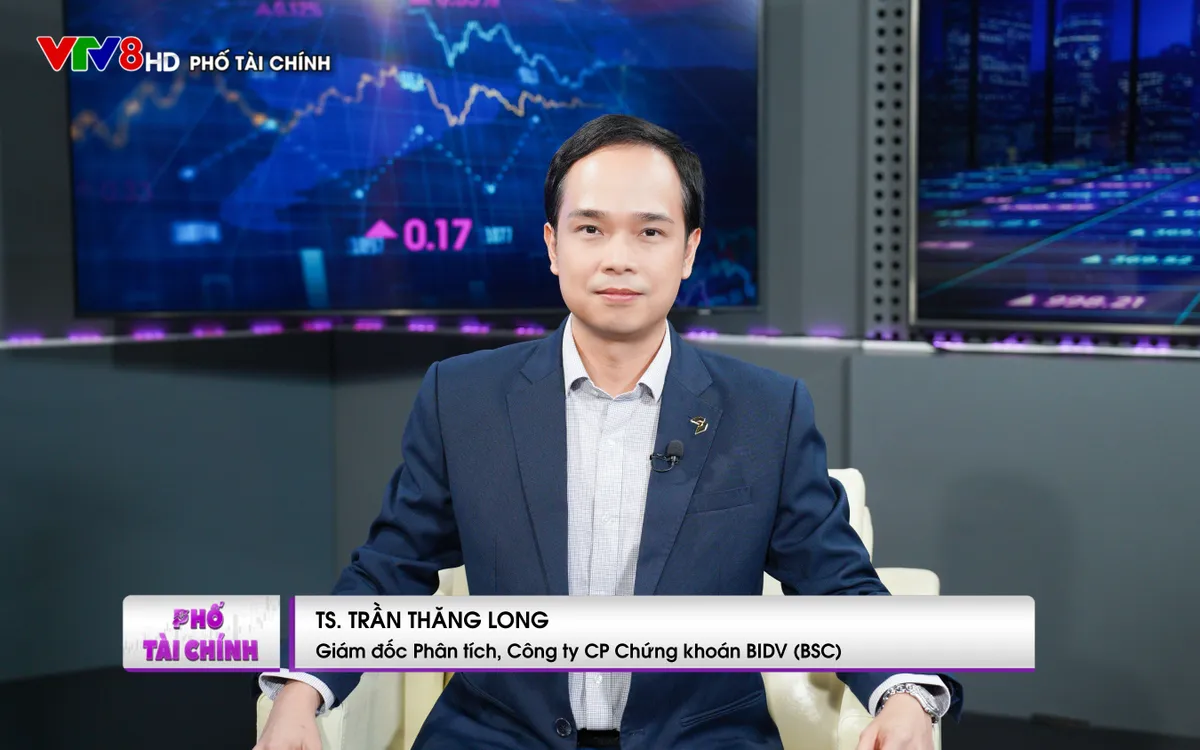
Foreign investors short-term net selling led by domestic cash flow
The stock market has been upgraded and foreign money is forecast to flow into Vietnam. However, in recent sessions, the market has been more volatile, while foreign investors are still selling strongly. Commenting on this issue, at the Finance Street Talk Show on VTV8, Dr. Tran Thang Long, Director of Analysis, BIDV Securities Joint Stock Company (BSC) said: "According to a recent statistic when BSC monitored funds in the Asian market, most of the funds have invested in listed stocks in Vietnam, but the proportion is very low, under 0.5%.
BSC expects that when Vietnam is officially upgraded to a secondary emerging stock market according to FTSE, the allocated cash flow will have a higher proportion in September 2026. Besides, after September 2026, the Vietnamese stock market will go through a transition period, usually lasting from 6-12 months, which is the time for investment funds to record information about newly upgraded countries like Vietnam and they will gradually adjust the proportion of stocks of those countries in the index basket.
According to Dr. Tran Thang Long, when upgraded to emerging stock market status, funds that previously specialized in investing in frontier markets will also have certain moves in restructuring their portfolios and reducing the proportion of Vietnamese stocks. Therefore, in the short term, we will see foreign investors net selling. Moreover, the net selling trend of foreign investors has been happening in the past two years, not only in Vietnam but in all Asian countries including stock markets of frontier countries and emerging markets. "I estimate that from now until about one and a half to two years from now, we will see the net buying trend gradually return when the FED interest rate level gradually decreases," Dr. Tran Thang Long commented.
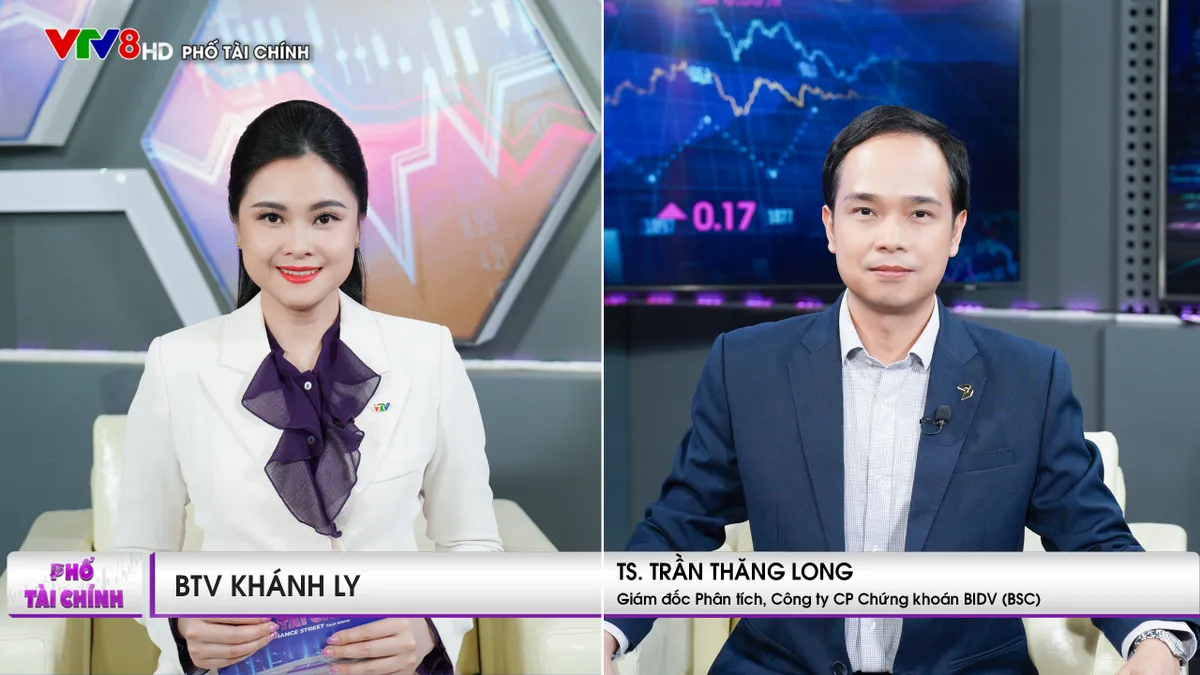
Dr. Tran Thang Long at the Financial Street Talk show.
BSC statistics show that the liquidity of the stock market in recent times is often over 30,000 billion to 40,000 billion VND, with some sessions reaching over 70,000 billion VND. Some foreign investors in Japan, Korea... are very surprised because the stock market in some countries in the Southeast Asian region such as Indonesia, the Philippines, Malaysia, Thailand... does not always have a liquidity level of over 1 billion USD/session like that. Currently, the transaction value of the Vietnamese stock market is one of the best liquidity levels in the Southeast Asian region.
This has changed the views of major investors, who previously thought that Vietnam would be at the bottom of the Top 05 in the Southeast Asian region in terms of both economic scale and stock market. But now Vietnam is being evaluated in the Top 01, Top 02 in terms of newness, liquidity and attractiveness. "I think this liquidity level is quite good and shows that domestic investors are participating very actively in the market, not only because of the upgrade but more importantly because of expectations for the internal growth of the economy", said Dr. Tran Thang Lon.
In addition, during the period from 2021 to 2025, the number of Vietnamese stock investor accounts increased by nearly three times, from more than 2 million to nearly 11 million accounts. And the number of investment accounts in fund certificates according to the latest update is approximately 2.5 million compared to about 11 million accounts. Showing that domestic investors are gradually considering the stock market as a relatively serious investment channel and gradually leaning towards the medium and long term, not just a short-term, surfing channel.
Instead, investors think about longer-term investments and asset accumulation, so the resources of domestic investors participating in the market are leading the way. Last year, foreign investors sold a net of about VND 90,000 billion and this year, up to the end of September 2025, foreign investors sold a net of about VND 77,000 billion. Domestic liquidity is still very good and domestic investors still believe in the growth of the market as well as the Vietnamese economy this year and the following years.
What improvements are needed to absorb the upcoming capital flow?
According to Dr. Tran Thang Long, The period of time that FTSE gives Vietnam a year before officially upgrading and then the time for transition is also a long period of time for all market members to prepare for Vietnam to officially move to a newer, larger space for development. FTSE has also made some notes related to issues such as market access rights of global investment service providers Global Broker, or the fact that they will continue to make assessments in March 2026 to re-evaluate the Vietnamese market... it can be seen that Vietnamese policymakers will need to continue to improve policies and mechanisms.
"The Vietnamese government has also proposed projects related to the goal of developing the stock market until 2030 or projects to restructure market investors, securities companies, fund management companies, and investors in Vietnam. Therefore, market members need to prepare for a more professional market in the near future," said Dr. Tran Thang Long.
In addition, according to Dr. Tran Thang Long, it is necessary to increase the scale of domestic fund management companies. Up to now, the total assets under management of domestic open-end funds are less than 3 billion USD (compared to the total capitalization of the HOSE floor alone, which is currently about 280 billion USD), which is a very small number. It is necessary to develop the fund industry more strongly, for a longer term, and more diversely. As for businesses, this is really a great opportunity and they need to be well prepared to take advantage of opportunities in a larger market, attracting many domestic and foreign investors, from which they can mobilize medium and long-term capital for their production activities.
Regarding the structure of the capital market, Vietnam is currently heavily dependent on capital from commercial banks. Therefore, enterprises need to increase the issuance of stocks and bonds to mobilize capital for medium-term and long-term investment. Moreover, Vietnam is aiming to promote strong economic growth in the next decade, so it is even more necessary to increase resources mobilized from the stock market and financial market.
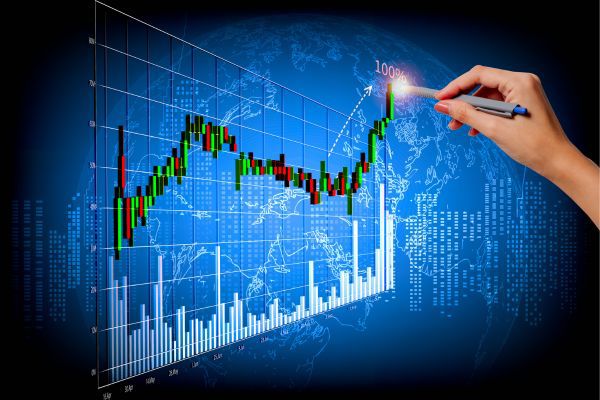
Although foreign investors continue to sell strongly, the market still maintains high liquidity thanks to domestic cash flow, reflecting confidence in Vietnam's economic growth. Illustrative photo.
Talking about the quality of goods on the current listed floor, there is a trend of IPOs associated with listings, but how can this trend continue to be promoted, helping to diversify goods and improve quality in the market?
Answering this question, Dr. Tran Thang Long said that BSC has been involved in the stock market for a long time, witnessing many IPO and listing waves in previous years such as Vinamilk, FPT, ACV, Vinatex, Vietnam Airlines... Now, we see that there is also a new wave of IPOs of companies. A very favorable thing is that the procedures related to IPO and listing are much simpler than before, saving a lot of time and costs for businesses.
"We will need to encourage more new listed companies, especially quality companies and companies with diverse industries. Currently, banking, real estate, and securities industries account for a large proportion of the Vietnamese stock market. Therefore, if the market wants to develop sustainably, it needs more large enterprises in other industries such as consumer goods, information technology, logistics, and industrial production-related industries. Only then can we attract long-term investment flows from foreign investors to Vietnam and also increase the scale of domestic investors," said Dr. Tran Thang Long.
In addition, according to Mr. Long, it is also necessary to promote financial education programs as well as disseminate investment-related knowledge to investors. Letting them concentrate their assets on medium- and long-term investment channels will help limit risks, reduce the risk of financial fraud and create a good medium- and long-term capital rotation for the economy.
Even optimistic investors always need to manage risks closely.
Commenting on the market in the coming time, Mr. Long said that during the growth cycles of the market, there are inevitable adjustment periods. Therefore, even if investors are optimistic, they always need to manage risks closely, protect their portfolios and be ready for market fluctuations. Avoid groups of stocks that have increased rapidly, and look for opportunities in groups of stocks that have not increased in price, combined with positive business results.
Second, the stock market is always a reflection of a country's economy and the health of its businesses. Earlier this year, the US tariff issues had a huge impact, but Vietnamese businesses have also recovered over the past period, and the third quarter business results show that some industries have been affected, but others have not been affected too much. Many businesses are also very flexible, they are starting to find new business directions. Meanwhile, the overall results of businesses on the stock exchange in the past 9 months are much better than the first 9 months of 2024.
At present, 2025 is almost over and in 2025, it is very likely that we will achieve the GDP growth plan of over 8% as set by the Government and the National Assembly. At the same time, many projects in the past have had problems with legality, procedures, capital sources, disbursement, etc., but in the third quarter, there was also a very positive signal when many projects were restarted and received more optimism from domestic and foreign investors. Next year, we still have the ability to promote infrastructure projects with high economic efficiency and high spillover, avoiding ineffective projects. The Government will need to promote more selectively to contribute to stronger indirect economic growth.
In addition, the consumption sector accounts for almost 70% of Vietnam's total GDP. In the recent period, consumption has begun to recover, but the growth rate compared to the same period last year is still at about 9%, while before 2019, consumption growth was at 11% - 14% / year, showing that the consumer sector still needs government policies. Although Vietnam has reduced VAT by 2%, it may be necessary to consider stronger policies, such as increasing personal income tax deductions, corporate income tax, lowering VAT, and personal income tax to have a stronger and tighter recovery of consumers, thereby contributing more strongly to economic growth in the following years. That is a prerequisite and policymakers need to consider and create conditions for the market.
"From BSC's side, I see that the upcoming period is very important, not only for the Vietnamese stock market but also for the Vietnamese financial market in general. This is also a pivotal year for Vietnam to set the goal of becoming a developed country by 2045. We, the members of the market, also recognize the very important task of being a bridge between investors and businesses to increase medium and long-term capital sources for businesses, bringing them into the economy. We are actively working with businesses on the OTC floor, businesses that have not yet been equitized or have not yet transformed into public enterprises to prepare for listing," said Dr. Tran Thang Long.
In addition, BSC is also persuading foreign investors to pay more attention to Vietnam; organizing many meetings with foreign investors who are sympathetic to the Vietnamese stock market such as Japan, Korea, Singapore... These are also investors who are quite familiar with Vietnam to some extent, to persuade them to invest more in Vietnam, increase the investment proportion in Vietnam in the future as well as participate in upcoming IPOs, capital mobilization, private issuance of stocks and bonds of Vietnamese enterprises.
According to Mr. Long, the rate of investors investing through fund management companies is currently very low, it is necessary to increase this rate to get medium and long-term capital for the market. This is not only the job of managers but also the job of all market members, in which BSC is also trying very hard to develop more training programs, as well as services, products, digitalization... to be able to contribute to helping Vietnamese investors understand more about financial knowledge so that investors can make good financial decisions, with a medium and long-term investment vision, as well as systematically in the Vietnamese stock market.
Source: https://vtv.vn/thi-truong-chung-khoan-viet-nam-dong-tien-noi-vung-vang-giua-lan-song-ban-rong-cua-khoi-ngoai-100251028104835445.htm




![[Photo] National Assembly Chairman Tran Thanh Man received a delegation of the Social Democratic Party of Germany](https://vphoto.vietnam.vn/thumb/1200x675/vietnam/resource/IMAGE/2025/10/28/1761652150406_ndo_br_cover-3345-jpg.webp)
![[Photo] Flooding on the right side of the gate, entrance to Hue Citadel](https://vphoto.vietnam.vn/thumb/1200x675/vietnam/resource/IMAGE/2025/10/28/1761660788143_ndo_br_gen-h-z7165069467254-74c71c36d0cb396744b678cec80552f0-2-jpg.webp)

![[Photo] Prime Minister Pham Minh Chinh chaired a meeting to discuss solutions to overcome the consequences of floods in the central provinces.](https://vphoto.vietnam.vn/thumb/1200x675/vietnam/resource/IMAGE/2025/10/29/1761716305524_dsc-7735-jpg.webp)
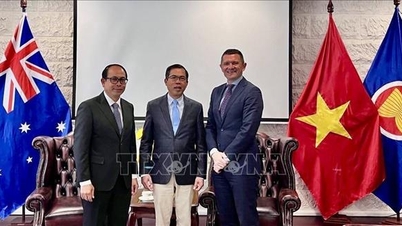





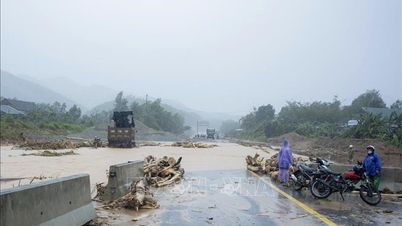
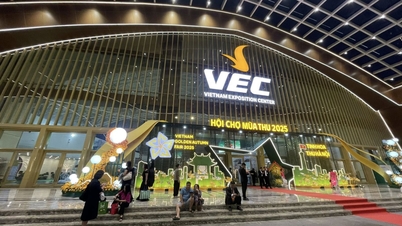




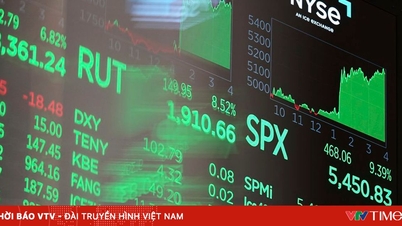

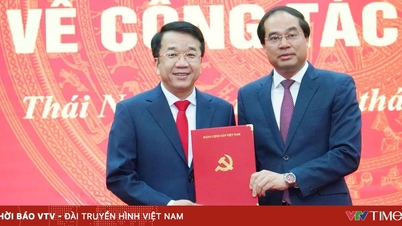
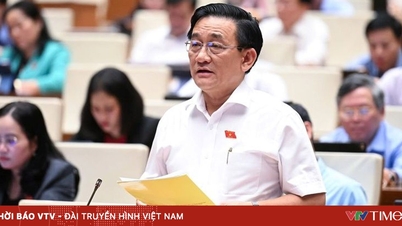
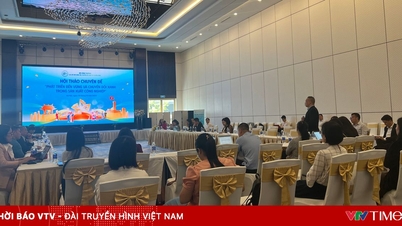
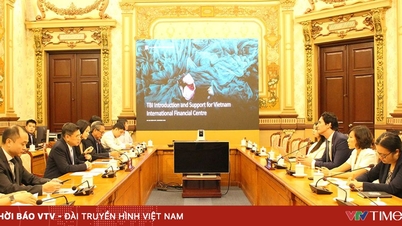
![[Photo] Draft documents of the 14th Party Congress reach people at the Commune Cultural Post Offices](https://vphoto.vietnam.vn/thumb/1200x675/vietnam/resource/IMAGE/2025/10/28/1761642182616_du-thao-tai-tinh-hung-yen-4070-5235-jpg.webp)


















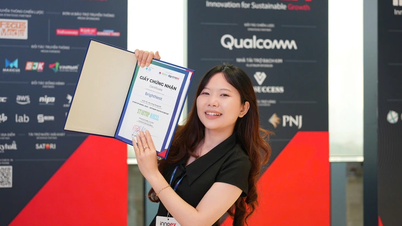
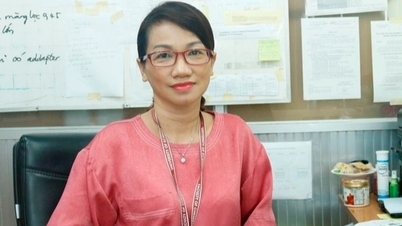













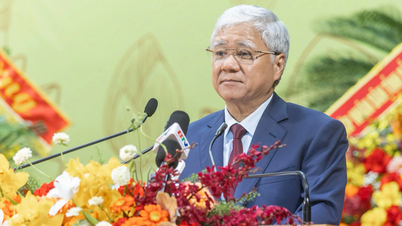
![[Infographic] Vietnam's socio-economic situation in 5 years 2021-2025: Impressive numbers](https://vphoto.vietnam.vn/thumb/402x226/vietnam/resource/IMAGE/2025/10/29/1761730747150_anh-man-hinh-2025-10-29-luc-16-38-55.png)


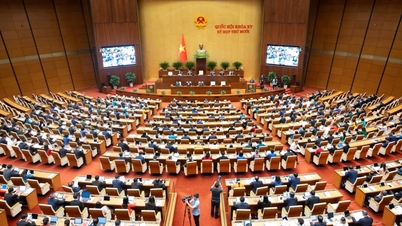
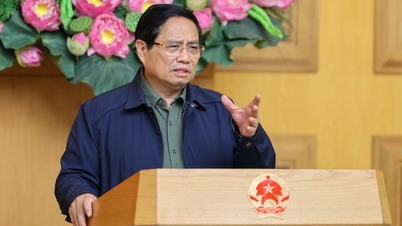




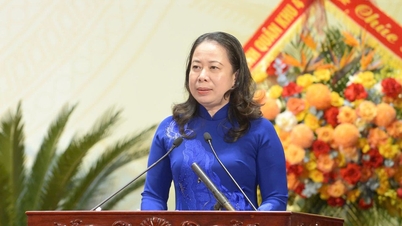

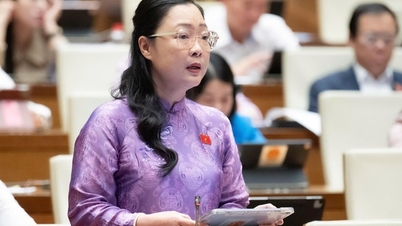









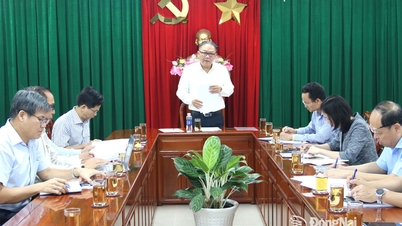






















Comment (0)